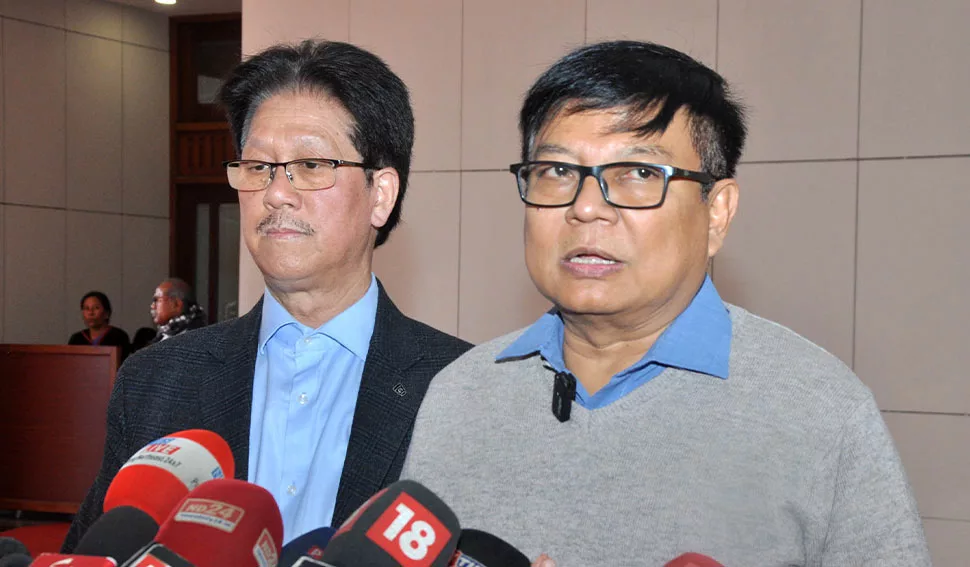CAA rules: Assam Cong files interlocutory application in SC; seeks stay order

Leader of Opposition in the Assam Legislative Assembly Debabrata Saikia on Tuesday an interlocutory application (IA) before the Supreme Court challenging the Rules published by the Ministry of Home Affairs (MHA) for implementation of the Citizenship (Amendment) Act, 2019.
In the IA, Saikia also challenged the the parent Citizenship (Amendment) Act, 2019 which was passed by the Parliament on December 12, 2019, to grant Indiana citizenship to the people
who entered the country till December 31, 2014, from Pakistan, Bangladesh and Afghanistan
Saikia submitted that the rules make religion and country-based classification which fails the manifest arbitrariness test laid down in Shayara Bano vs Union of India (2017) 9 SCO 1 in that it is not fair, not reasonable, discriminatory, not transparent, capricious, biased, with favouritism or nepotism and not in pursuit of promotion of healthy competition and equitable treatment.

“The normal rule of presumption of constitutionality of a statute does not apply in the present case. The rules violate Article 14 of the Constitution, which guarantees equality to all persons: citizens and foreigners. Differentiating between the people along religious lines, especially when it comes to citizenship issues, would violate the Constitution,” the petitioner said.
He also submitted that the impugned Act and Rules are not based on any determining principle and hence are manifestly arbitrary. The object of the Act states that the three selected countries provide for a specific state religion. As a result, many persons belonging to Hindu, Sikh, Buddhist, Jain, Parsi and Christian communities have faced persecution on grounds of religion in those countries. However, Sri Lanka also has a state religion. The classification might be singling out persecuted religious minorities. However, on this logic, Sri Lankan Eelam Tamils must also be included, as the Tamil Eelams are persecuted based (Hinduism) and ethnicity.
“The rules violate the Assam Accord which is a result of 6 years of agitation in the state. Clause 5.8 of the Assam Accord states: ‘Foreigners who came to Assam on or after March 25, 1971 shall continue to be detected, deleted and expelled by law. Immediate and practical steps shall be taken to expel such foreigners,” the petitioner also said.
“By granting citizenship to non-Muslim illegal migrants who came to India from Afghanistan, Bangladesh and Pakistan before December 31, 2014, the Act contradicts the Assam Accord of 1985. It is limited to religion on respectfully submitted that this is an attempt to destroy the fragile ethnicity and socio-economic fabric of the state of Assam,” Saikia said in the petition.
He argued that this is in contravention of Clause 6 of the Assam Accord which states that ‘‘Constitutional, legislative and administrative safeguards, as may be appropriate shall be provided to protect, preserve and promote the culture, social, linguistic identity and heritage of the Assamese people.”
“The impugned Act and the Rules by design and default ensure that the people excluded from the NRC list, who are belonging to the religion of Hindus, Sikhs, Buddhists, Christians would be able to seek protection under the impugned Act. However, the people excluded from the NRC list belonging to the Muslim religion would face proceedings of Foreigner Tribunal,” Saikia also said.
“The impugned Act and the rules ensure that the proceeding before the Foreigner Tribunal and detention would be directly targeted against the Muslims alone. This will only make the Foreigners Tribunal arbitrary,” Saaikia further said.
“After the enactment of the CAA, heated protests had emerged throughout the country, especially in the states of Assam and Tripura, This was followed by brutal persecution of the protestors including foisting of false criminal cases on them. Many of such protestors are still languishing in jail. It is respectfully submitted that there is apprehension that the implementation of the impugned Act vide the notification of the Rules will result in a fresh onslaught on the fundamental right of freedom of speech of citizens of India and the muzzling of dissent,” he said.
“It is pertinent to mention that the DCP (Crime), Guwahati has served notice upon 16 opposition leaders, belonging to various political parties which form the United Opposition Forum, Assam pon March 12, directing them to withdraw their call of “sabartmak hartal” (strike) against the Rules or face legal action,” he alleged.
Saikia further submitted that this notice is a blatant attack on the democratic rights of persons belonging to the United Opposition Forum, including the petitioners herein. It further submitted that the notices misinterpret judicial precedents. The Kerala High Court in Bharat Kumar K Palicha vs the state of Kerala [AIR 1997 Ker 291], affirmed by this court in Communist Party of India (M) Bharat Kumar [(1988) 1 SCC 201] distinguished between a ‘bandh’ and a ‘hartal’. While the said judgements mandate monitoring and against illegal blockades, they do not restrict peaceful protests or ‘hartals’.
He also submitted that since the impugned Act was enacted in 2019 and no action implemented for the past four and a half years prejudice will be caused if its implementation is deferred till the final decision of this court in the present writ petition.

Leave a Reply